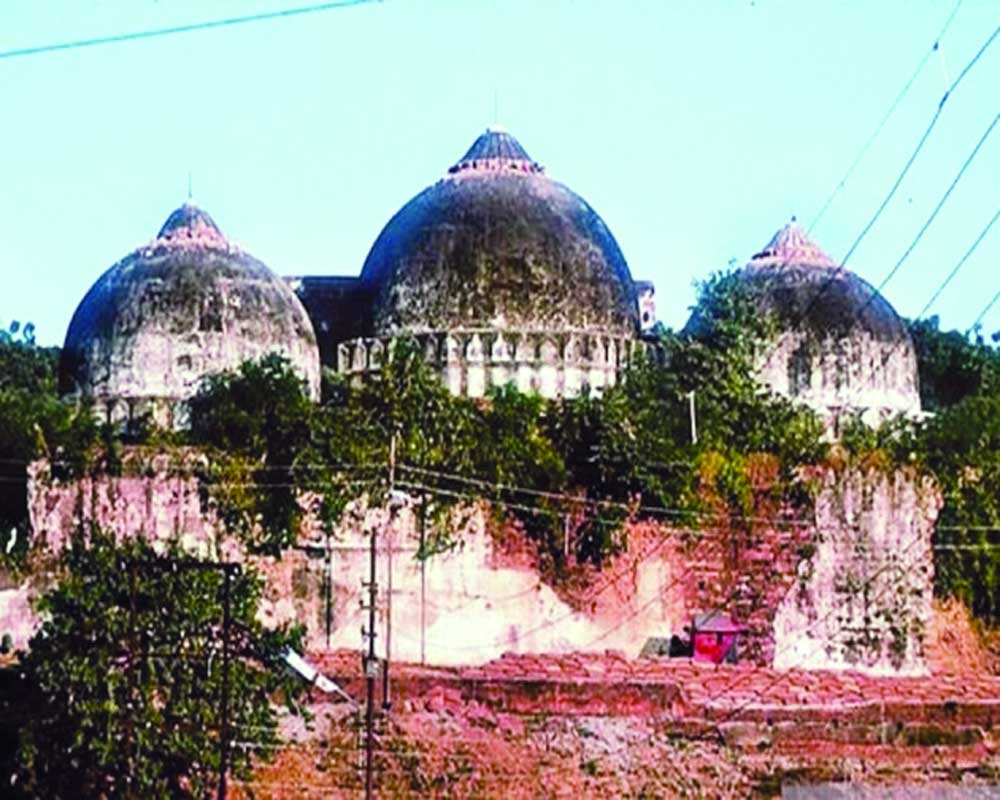The issue can hardly churn up emotions the way it did in the 1990s. Now that it has been flogged enough, what next?
A context effect is an aspect of cognitive psychology that describes the influence of environmental factors on one’s perception of a stimulus. That’s exactly what has happened in the Ram-Janmabhoomi-Babri Masjid tussle at Ayodhya. At one time, it embodied the beginning of identity politics, the accommodative Hindu versus the appeased Muslim swiftly turning into a disparate equation based on denial for a new narrative. Therefore, the “rightist” Hindu wanted a historical revision of being the original claimants of civilisational land, in this case the birthplace of one who defined the ultimate ethics of being human and behavioural propriety, Maryada Purushottam, or Lord Ram. One that had been ordained by faith than historical evidence and the mysticism of which, many felt, should override every human construct and depredation, in this case a mosque built in the Mughal era of Babar. That thought process, claimed by the BJP, posited itself against the liberal-secular matrix of the time as a bequeathed colonial legacy. It codified nationalism or Bharatiyata for a generation that was far removed from the freedom struggle and was fast finding its feet in a globalised world. What it also did was separate Hinduism, the philosophy, from Hindutva, the practice of it. That has come full circle and now that the BJP has got a mammoth verdict, it has legitimised the majoritarian discourse. To that extent, there is a general acceptance of the reality of the temple. Even residents of Ayodhya are tired of being circumscribed by a political context that doesn’t help their aspirations and are accepting of any solution, so long as there is closure. With jobs and education on their mind, an entire generation, be it Hindu or Muslim, born under the shadow of the dispute is ready to cast away a beast of burden. This changed perspective then has dulled much of the appeal of Ayodhya.
Of course, the Supreme Court must be appreciated for stripping down the complexity of religiosity to the titular nature of land ownership and attempting a mediation. The three main parties — the Nirmohi Akhara, Ram Lalla Virajman and the Sunni Waqf Board — have presented their points of view. Nirmohi Akhara lays its claim by virtue of being servitors of Lord Ram for generations while the Sunni Waqf Board has based its case on the fact that the Babri Masjid stood till 1992. Yet some of its members have reportedly softened up to settle for an alternative mosque, a counter assurance that no other mosque will be touched and that ASI would restore other mosques in the area. Ram Lalla, who became a legal party in the title suit only in 1989 when former Allahabad High Court judge Deoki Nandan Agrawal moved the High Court, claimed the entire birthplace as divinity reincarnate. So, now the court has to sift through issues like memory, continuity, belief systems, tradition and historical evidence, howsoever little of the last. But weighing abstractions and perceptions may be an extremely delicate matter. The Ram Mandir was an emotionally galvanising force that had got the Sangh Parivar close to claiming political power through the BJP. And though the Atal Bihari Vajpayee era, by virtue of its coalition pressures, demanded pragmatism in governance, the current Narendra Modi regime has no such reason to compromise. There are also expectations of it to translate ideological reverence into action, considering it has to justify the core of its being, the committed Sangh Parivar cadres. The party brass is hoping it will at least be seen as attempting a closure within legal perimeters, even if not entirely successful. Perhaps, Modi is in a rush to foreground Hindutva concerns like abrogation of Article 370, Ram temple, immigrants and uniform civil code so that they do not remain irritants to his definition of the Hindu Rashtra and by implication development. That itself is fraught with grave challenges as without sales pitches and illusionary diversions, he will have to now walk the talk on real issues. Modi’s bigger concern is the electorate which feels betrayed on livelihood and comprises the poor, both rural and urban, and the middle classes. That job is tougher if indeed the BJP pursues the idea of Ram Rajya. For Lord Ram willingly sacrificed Ayodhya’s throne for harmony in the kingdom, avoided any criticism and stood firm on his principles. He also gave back Lankans their land after the war with Ravana. Yet the Ayodhya dispute has only entrenched divisiveness in the country. Perceived justice over historical injustice may not be walking in his path.


























